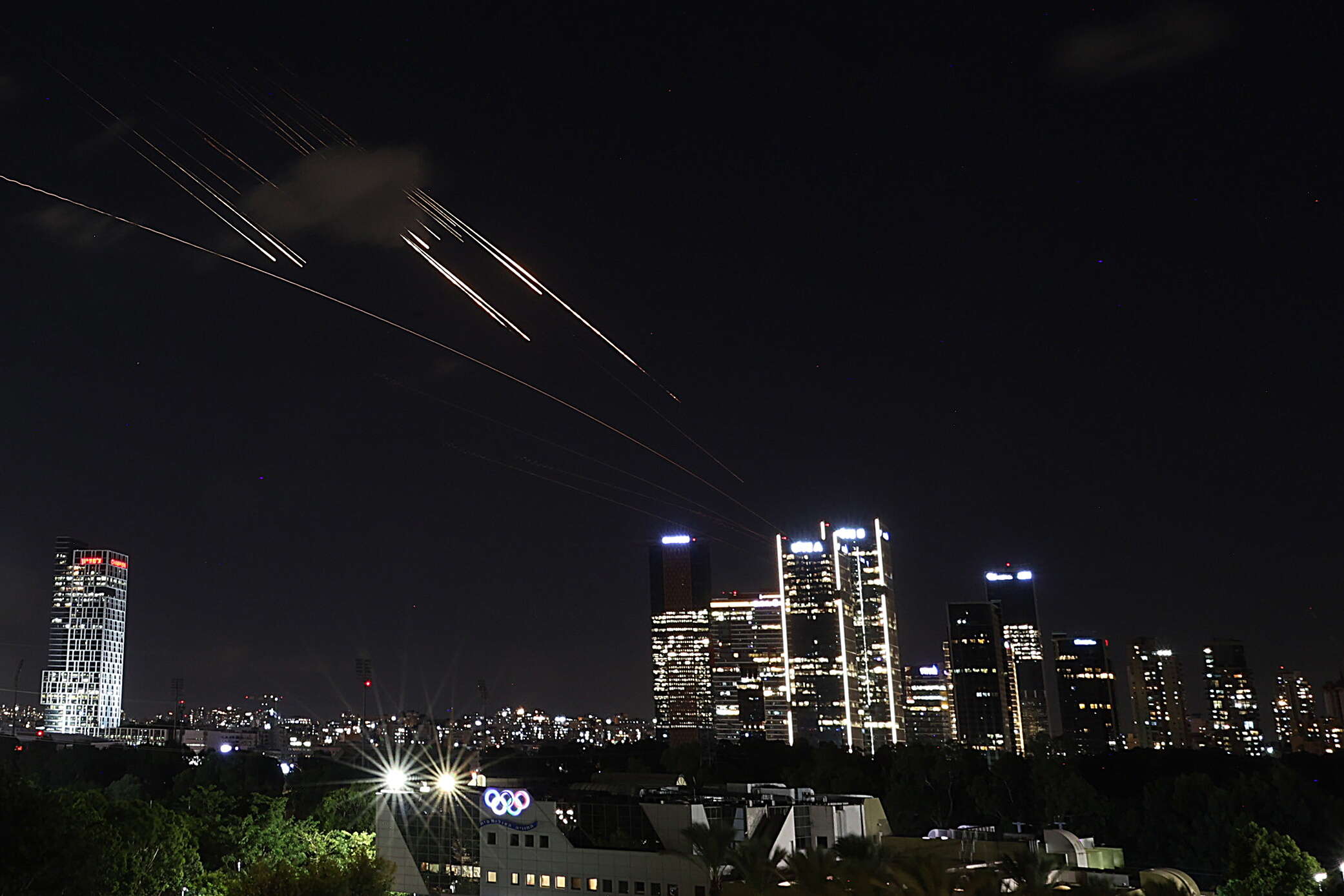How Israel can win against Iran in its own dangerous game
Strategists in Jerusalem are working to prevent a scenario that Tehran desires most: a war of attrition. The key: securing a US pledge.
Ariel Kahana
Israel Hayom
Oct 11, 2024

Iran's Kharg Islad oil terminal
The world watches with bated breath, wondering how Israel will respond to Iran's second missile salvo. Behind closed doors in Jerusalem, a crucial strategy is taking shape – one aimed at preventing Tehran's preferred scenario: a war of attrition. Such a conflict would unfold in a predictable, yet dangerous pattern: Israel retaliates, Iran launches more missiles at Israel and potentially other regional countries, Israel counters, and the cycle continues ad infinitum.
Israeli leadership, keenly aware of this trap, is reportedly considering a response of overwhelming force. According to Israel Hayom, the goal is clear: to strike Iran so decisively that the Islamic Republic will think twice before engaging in a protracted conflict with Israel.
It's worth noting that Iran's strategy of wearing down Israel and other US allies in the region is not merely a choice, but a necessity. Militarily, it's the only card left in Tehran's hand. Iran neither desires nor possesses the capability to deploy ground forces against Israel, given the vast geographical distance and intervening countries. Moreover, while Israel boasts one of the world's most formidable air forces, Iran's air capabilities are comparatively limited.
Israel's trump card in this high-stakes game is its unparalleled air defense system. For years, Iran had counted on its network of proxy organizations to provide a protective umbrella against Western strikes. However, a year into the current conflict, this strategy lies in tatters: Hamas is reeling, Hezbollah is on the back foot, and the various militias in Iraq and Yemen amount to little more than an irritant for Israel. The result? Iran finds itself unexpectedly exposed.

The Iranian barrage on Israel on Oct. 1, 2024
Behnam Ben Taleblu, a senior researcher at the Foundation for Defense of Democracies (FDD), offers valuable insight into Iran's evolving strategy. "April was a watershed moment," he explains. "Since the first missile attack, we've seen Israel decisively seize the initiative, escalating the situation to its advantage. Iran, caught off guard, has found its military options severely limited."
Ben Taleblu, who has spent years studying Iran's missile capabilities, emphasizes the murky nature of the information landscape. "Concrete data on Iran's missile arsenal is scarce," he notes. "But estimates suggest they possess around 3,000 short and medium-range ballistic missiles – the largest such stockpile globally." These weapons, crucially, can reach Israel.
The second Iranian attack, in Ben Taleblu's assessment, showed marked improvement. "They doubled the missile count and employed more advanced systems," he observes. "While they didn't use the hypersonic missiles they've boasted about, they did deploy more maneuverable variants."
Oded Eilam, drawing on his experience as a former senior Mossad official, offers a more conservative estimate of Iran's capabilities. "Their arsenal likely numbers around 2,000 missiles," he suggests. "It's substantial, but their production capacity is constrained, with some lines dedicated to supplying Russia."
Even assuming the higher estimate of 3,000 missiles, questions linger about their operational readiness. Sources reveal that in the aftermath of the first attack, Iranian leaders initially doubted Israel's claims of successful interceptions. The reality of their failure took time to sink in, prompting a period of intense analysis and testing.
Learning from these setbacks, Iran deployed more advanced Fateh-2 missiles in their second strike. However, Eilam estimates their stockpile of these advanced weapons is limited to between 400 and 800. With 200 already expended in a single attack, Iran's reserves of truly effective missiles may be running low.
This raises a critical question: can Iran sustain a prolonged ballistic exchange with Israel? The numbers suggest their capacity for attrition warfare may be more limited than they'd like to admit.
Eilam is unequivocal in his assessment of the strategic balance: "Iran faces a significant disadvantage against Israel. They lack a single Arrow missile and there isn't a single shelter in Tehran. They're vulnerable in terms of maintaining operational continuity or recovering from an attack – precisely the opposite of Israel's capabilities."
To break the cycle of escalation, Eilam proposes a bold strategy. "Israel should consider a severe, but targeted strike," he argues. "Hit the nuclear program – even if we can't destroy it entirely. Target weapons depots and missile factories. Strike symbols of regime power, like the Revolutionary Court in Tehran. The goal is to send a message that resonates with every Iranian citizen, even without access to the internet."
Crucially, Eilam emphasizes the importance of coordination with Washington. He suggests securing a US commitment: if Iran dares to launch a third strike against Israel, the American response would target Iran's oil industry – the regime's economic lifeline.
This approach, Eilam contends, offers the best chance of deterring a war of attrition. But even if Iran miscalculates and strikes again, he believes the strategic math remains in Israel's favor. "They can inflict pain, certainly," he acknowledges. "But they're exposed in ways they never anticipated. The regime isn't built for multi-front warfare, and their overriding concern is survival."
Eilam's final assessment is sobering: "If Iran, against all logic, opts for a war of attrition, Israel's response must be overwhelming. Collapsing the oil industry on Kharg Island would be a potential endgame. At that point, the regime's fate would be sealed."
1 comment:
Fire bomb the oil terminal. Twice.
Post a Comment